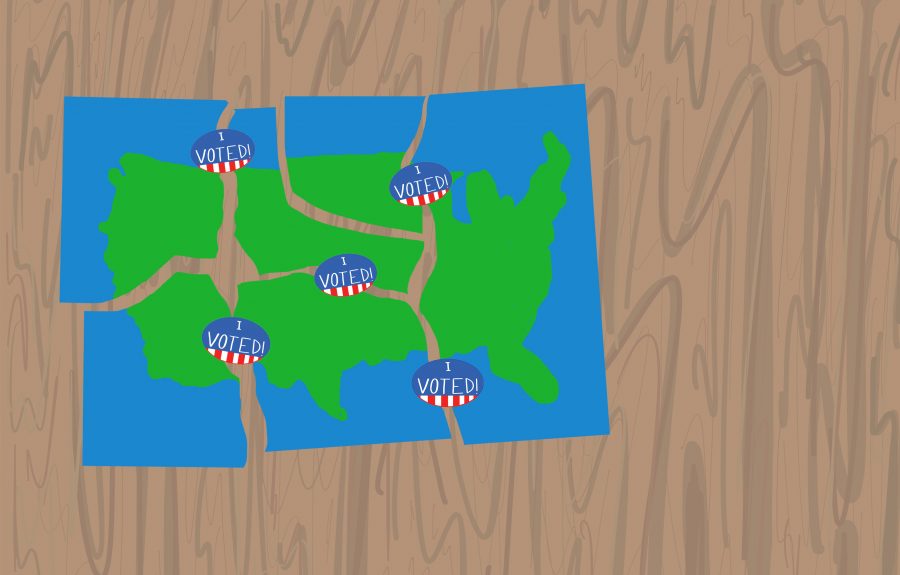As students joined the long lines outside of their local schools and community centers, they prepared to vote. After long months of waiting and scanning news articles, they were finally ready to engage in their first experience of official political participation. In a matter of minutes, the young voters emerged from the polling stations with the knowledge that they had done their civic duty. Sporting “I Voted” stickers and a sense of national pride, the students had not only exercised their constitutional rights but expressed their individual voices.
The 2018 midterms last Tuesday marked many students’ first time voting. According to the New York Times, registration among young voters increased ahead of the elections, and while exact numbers have yet to be reported, voter turnout soared. Yet, in a Chronicle poll, only 41 percent of 70 respondents who could vote said they did, while 95 percent of 297 respondents who couldn’t vote said they wished they could.
All students who have the power to vote should do so. Whether they feel passionate about all measures or only a few, we should take advantage of this opportunity to express our opinions.
More significantly, however, we should go to the polls to contribute to fixing the multitude of problems ailing our country.
Just in recent weeks, violence and hate have rocked our country. An anti-Semitic attack in Pittsburgh on Oct. 27 killed 11 people in what the Anti-Defamation League said was the deadliest attack against Jewish people on American soil. Last Thursday, a gunman opened fire on the Borderline Bar in Thousand Oaks, Calif., a community just under an hour away from our school.
These events are often entirely out of our control. No matter whose solutions you prefer, candidates from all points on the political spectrum have advocated for policies they believe will prevent these crises. What we can control is how we respond to these issues.
Voting allows us to channel our despair and hopelessness into tools that allow us to make change. Voting engages us in the political process and gives us a voice in our government, a privilege many people our age around the world do not enjoy. Voting not only can ensure our ideas get put into practice by electing politicians we respect, trust and agree with, but also can encourage others around us to be civically engaged as well, creating a virtuous cycle of political participation.
Even though we are two years away from another major election, we must also remember that political participation does not end when the polls close. Students can work on campaigns, attend rallies and donate to or volunteer for charitable organizations which support causes they believe in. Students should also work to stay informed by reading articles, attending talks and learning about policy positions. In an age of remarkable political polarization we can also spend more time respectfully listening to and debating those with differing political views, giving everyone new perspectives and more informed viewpoints as a result.
Tragedies that have shaken our country recently have struck particularly close to home. This should galvanize students to go out to the polls, inform themselves and keep out or put people in power that they believe will contribute to solutions.
We can do better than 41 percent.
































